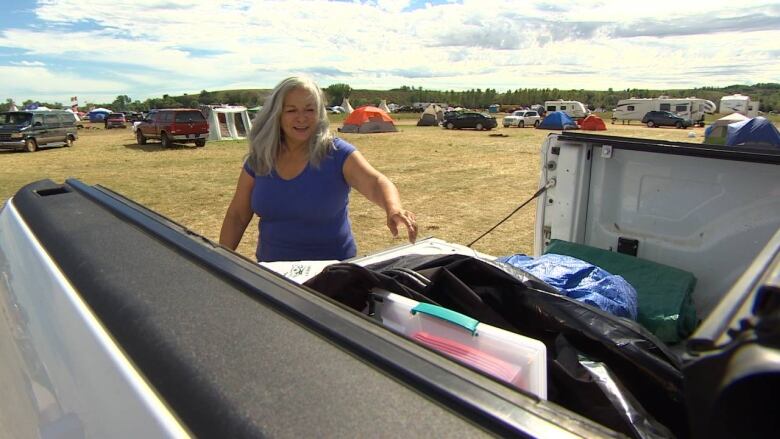Responsibility, unity, hope: Stories of people who've come to Standing Rock
Young and old, profiles of those engaged in the fight against the Dakota Access Pipeline

For weeks, thousands of people from across North America have been gathering at camps that have sprung up in and around Cannon Ball, N.D., a town within the Standing Rock Reservation, just south of Bismarck, N.D.
They are joined in opposition to the Dakota Access Pipeline, a multimillion-dollar project that's supposed to transport light sweet crude oil from the Bakken oilfield near the Canadian border to Illinois.Enbridge, based inCalgary,is investing $1.5 billion to be part of the project.
Some drove all night, hundreds of kilometres just to be here. Some brought their grandchildren, or say they are here on their behalf.But the personal stories of what brought so many here and why they've stayedare as varied as the hundreds of Indigenous nations where they come from.
Here are four, in their own words.

I wanted to stand up with the Standing Rock Sioux Tribe. Try to defend our basic human - I don't want to call it right - but our basic human need for water. Water isn't just a struggle here. Politically, I'm with the Owens Valley Indian Water Commission, a consortium of three tribes.
I was at Alcatraz, when there was an occupation. I was a senior in high school, that was 1970. I have to give credit to alcohol (laughs). I was drunk up in my mountain territory and it was so cold that morning, I was hitchhiking just to get a ride and I ended up over in San Francisco (laughs).
But being at Standing Rock has been great. It's been a blessing. To see the unity, the amount of love, compassion. This camp here, it gives me a great sense of hope.

We have a responsibility to ensure that there is life. A future for our grandchildren.
Our mother told us in the early '90s, it's unheard of, but she asked us not to have any more children unless we could guarantee that our children were going to have a future that was clean, that they would be healthy. We didn't think much of then, we listened to her, but now when we think back to what she said back then she saw this.
She saw that this was the kind of life that was coming for our children, and she didn't want her grandchildren subjected to a life of turmoil or a life of having to fight for food, water and good health.
Layha Spoonhunter, 26, Wind River Indian Reservation, Wyoming. 'We are resilient'

There was a time when we couldn't have long hair. There was a time when we were made to feel ashamed of our identity. Those days are no more. We are proud and we are strong here. We are resilient.
My life here is really different.I'm not looking at a television each day. I'm getting to hear from elders, I'm getting to hear our stories, and hearing the different songs from all the different tribes that have come here, it's really uplifting.
Diane Hart, Bishop Paiute Nation, California. 'It's like the creator was driving me here'

I just felt the urgency to come and be here. It's like the creator was driving me here, I couldn't not come.
My purpose in being here is to see the unity. I'm hoping that our tribes can see how strong we can be as a people if we band together. It's just doing my heart so much good to watch this camp and the friendship and the unity and everybody putting everything aside and working for one cause.
I brought my two granddaughters, so they could see how the Indians now are negotiating and coming together. My grandparents, they were just stomped down, they were kept down. Now it's evolving to this situation where actually a voice and some strength.












_(720p).jpg)


 OFFICIAL HD MUSIC VIDEO.jpg)
.jpg)



























































































